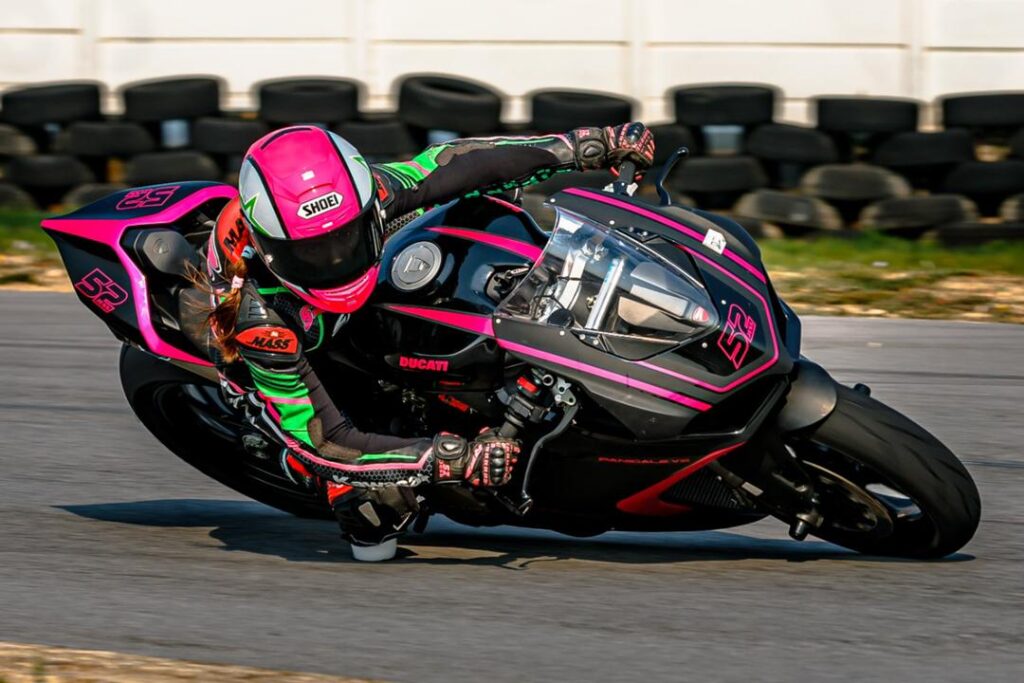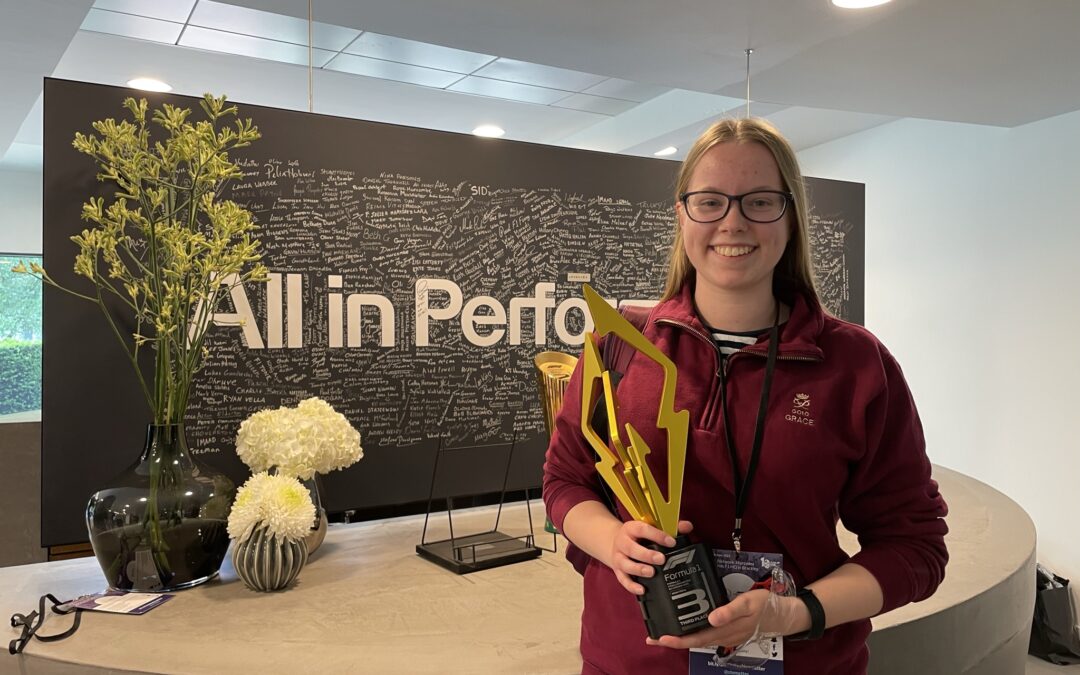It’s never easy for a woman to fight her way into a motorsport industry filled with men, especially in marginalised sectors like motorcycle racing and engineering. The stories of two aspirational young women show other youthful motorsport fans how to succeed.
The racing journey of Jessica Howden, the first African woman to compete in the European championship, started at a very young age: “When I was a little girl, I used to go to the racetrack with my dad all the time because he used to race too. While I was there, I saw another girl who was racing, and she actually won the race. So then I decided that’s exactly what I want to do.”
Another woman in the rarely seen field of engineering within the motorsport industry, Grace Blain grew up watching F1 with her father and made up her mind from a young age to be a part of it rather than just watching.
“F1 came before engineering for me in terms of what I wanted,” said Grace, a Formula Student competitor who is working towards a mechanical engineering degree. “I originally studied German, Latin, and classical Greek, as I thought about becoming a linguist. At the time, I thought I could be a translator in F1.”
Grace gradually found her interest in maths and physics and realised that engineering is more compatible with F1.
As both individuals were inspired to enter the industry, they struggled to find role models since the media rarely covered stories of women in motorsport.
“It’s been a few of the men who’ve been my role models because we don’t really get to see women that much on TV,” Jessica explained.
“I’ve always seen it as unfair. I feel like now it’s getting better in the world because we get the same coverage as men. Over the past few years, I feel like no one really cared about women in motorsport. It’s difficult.”
However, Jessica did have a female role model, Nicole Van Aswegen, a South African motorcyclist like her. She was a trailblazer in the industry and is now her competitor in upcoming races.
“We raced together in South Africa, and she was always faster than me – that was when I was really young. Then I moved to Europe, and Nicole and I were really close. She was my coach for a while. As I improved in Europe, that’s when we started not becoming friends anymore. We don’t really speak that much anymore, but we have to race each other this year, so we’ll see how it goes.”

As a predecessor became an equal, Jessica was fortunate enough to have known a female role model from her early days in the sport, but Grace never had a similar experience.
“The coverage of engineers was almost non-existent,” said Grace, who has many male F1 engineer role models but found the absence of female representation was glaring.
Competing with men is different from looking up to them as models, whether on or off the track. The challenges faced not just in competition but also in everyday life are frustrating for both Jessica and Grace.
When mentioning how men and women can compete together in motorsport, Jessica said: “I feel like with my sport, people judge us based on how fast we are. They put us with men, which I don’t think is fair. Physically, it’s impossible to match the laps the men do. Recently, they introduced a world championship for women, so I feel like it’s getting better. It’ll show that women are strong.”
In a team of people where Grace represents one out of the 10% female workforce, she found it particularly challenging for women engineers. She explained: “When you’re a woman, you have to earn the respect of male colleagues, which is annoying. But once you earn the respect, you’re treated as an equal.”
For Jessica, the frustration continues when it comes to funding, a key part of a racer’s career.
“In South Africa, we barely have any help from the government or any initiatives for women. But in Europe, it has started to get better. I also do scooter racing; that side of the sport really helped me to get sponsorship for this year. Those involved in it said that they look at women because it gets more coverage and they think it’s more exciting. So luckily, I was able to find a sponsor this year, and they decided to sponsor me for motorbikes too.
“You could be the best woman in the world, and you’d still have to pay to ride the bike, whereas for men it’s different. You can be a top 10 rider in the world, and you’ll still get to ride for free. I want that to change in the future.”
Whether on or off the track, to excel in a male-dominated world, the road ahead is fraught with difficulties, requiring more than just knowledge and skills, but also unwavering determination. Both Jessica and Grace hope to see more of a female presence in this industry.
“To have an interest is very important; the biggest barrier is the fact that everything is behind a paywall. If more people just watched it on TV, that would help us get more exposure. But we should also put ourselves out there, making ourselves visible,” said Grace.
“It’s tough in the beginning, and it’s always tough, but I would say to keep going. Some are actually afraid to start because they are girls. It is difficult, but the more you keep going, the easier it gets,” concluded Jessica.

